July 24 marks the 70th anniversary of the Abkhaz poet and social and political leader, who was for more than 15 years the IAAAP General Secretary - now WAC - II degree commander of Honor and Glory Gennady Alamiya.
Said Bargandzhia
How do you imagine a poet before meeting him? Of course, poetry is a sphere of feelings. But the real, true feelings are not at all dependent on some external refinement of their owner. Going to a meeting with Gennady Alamiya, I decided not to predict anything, but just to peer at my famous interlocutor.
Apart from the fact that Alamiya is a poet and publisher, social and political activist, founder of the Confederation of the Peoples of the Caucasus, for more than 15 years he was the secretary of the International Association of the Abkhaz-Abaza people (now - the World Abaza Congress - ed.), he is versatile and talented in everything, like all talented people. For example, the poet Alamiya is also a pilot of small aircraft, as he himself will tell later.
What you can’t call him exactly is sentimental. And at the same time ... This seemingly strict, somewhat even rude person, who in a few minutes of our communication with him has already managed to demonstrate a sort of “sharpness in an intelligent form,” all with the same severity begins to talk about the soulful, of all the events of his life, the main thing is self-awareness in this world. At the same time several times, all with the same severity, he asks again: “Are you sure you listen carefully?”.
Instead of answering about childhood
When I said goodbye to the sun at sunset,
And in the morning I met it. Then I was born.
When I went on my way out of the house with the thought of returning here,
Then I was born! .. ”
Alamiya reads these lines instead of an answer about his childhood, somehow immediately translating the topic from the actual beginning of life to the spiritual. He will also talk about childhood, but for now ... For the time being, I “listen carefully”, trying not to miss anything important. And the formation of an outstanding person, a poet-philosopher is important. This is all the same thoughts about the brightest moment of life, when he “suddenly found himself in this world.”
“A child does not immediately realize that he has come to this world, does not immediately understand where he is. That awareness of this and remains the most important memory of my life, with all its difficulties, with all the turmoil. But I clearly understand that here, in life, there is more joy, more light than shadow,” explains the poet.
Father's house
He was born on July 24, 1949 in the family of Shaliko Alamiya and Clara Kaslandzia. Mother was also called Lily, she was a cousin of the prominent Abkhaz actor Leo Kaslandzia, and for many years worked as a teacher of Russian language and literature in the Kutol school. His father, Shaliko, was an economist by profession. For many years he led a collective farm in the village of Kutol (village in the Ochamchira district of Abkhazia - ed.).
“In those difficult years, he was able to organize work so competently that people came to Kutol to earn money, many lived well. He banned the removal of the forest from the village and built a sawmill, jobs appeared. He was a special person. I don't know anyone like him anymore. It was a man who lived for others,” recalls Gennady Alamiya’s father.
Father's house stands in the village of Kutol today. It is still the same as many years ago, humble and dear. Now Gennady is restoring it. His younger brother Givi lives in the house.
“The graves of parents are on a small hill above the house, and sometimes it seems to me that the father is looking sadly at the house in which so many people once lived. Therefore, it is important for me to restore it,” says Alamiya.
In their father’s family there were six children, Gennady was the eldest.
He always studied well, while, as it is recognized, he was neither an “excellent student” nor a “hooligan”. Since childhood, he had a great love of reading.
“Often I fell asleep late, I read a lot of fiction at school. Much has been deposited in the memory,” he says.
Tractor dude
Of the people with whom his life brought him in those childhood years, the principal for Gennady was the headmaster of the school in his native village, Ivan Nikolaevich Sadzba.
“Ivan Nikolayevich was an outstanding man. They [together] with father created a student brigade. We had two tractors. In the summer we (schoolchildren - ed.) worked, collected tea. We were paid for work, the collective farm added some money, and we traveled. We managed to travel around the entire Soviet Union with this money while still being schoolchildren,” says Alamiya.
Once, returning from field work, Gennady Alamiya turned over on one of those same tractors.
“This was the real showing off. I drove and saw that my mother was watching me. I wanted to show her how to control the tractor. I played around and did not understand how it turned around,” recalls the case of Alamiya, which, fortunately, managed without consequences.
“Tell him to never write again”
Immediately after graduating from school in 1967, Gennady Alamiya entered the Physics and Mathematics Faculty of the Sukhum Pedagogical Institute. In this university, he studied until the third year, and then changed it to the Moscow Literary Institute of the USSR Writers' Union named after Maxim Gorky.
“I left the mathematics department because I didn’t have a relationship at the faculty. These were the years when Georgians ruled here. Moreover, I just had the opportunity to enter a literary institute in Moscow,” he explains.
Prone from childhood to literature, he himself wrote poems. By that time - and this was 1970 - Gennady Alamiya had accumulated them on a compilation, which was released a year after it arrived in Moscow. The collection is called “Blue Sky”.
Then there were many more collections of his poems - more than ten. These poems today are popular, touching the souls of readers. Gennady Alamiya also translated into the Abkhaz many works of world classics, repeatedly acted as the author of scientific articles.
An interesting story associated with the very first poem of the poet. It was once published in a school newspaper in Kutol, and over the years Gennady Alamiya completely forgot about it.
“I have already returned from Moscow after studying. And [the headmaster] Sadzba showed me a poem, but he did not say who the author was. I asked for recommendations. I read and asked Ivan Nikolaevich to tell the author that he would never write again, because he had no talent. Then Ivan Nikolaevich laughed loudly, he laughed so much! .. When he calmed down, he told me that I was the author. It turned out that this is the very verse that I wrote at school,” laughs Gennady Alamiya.
Work in the media and the independent newspaper of the movement “Aidgylara”
After graduating from Moscow University Alamiya, in the same place, in Moscow, had his internship in the “Friendship of Peoples” journal, then worked in the Moscow region city of Ramenskoye in a local newspaper, and a few years later returned to Abkhazia. He worked in the museum named after Dmitry Gulia, later in the children's magazine “Amtsabz”, then in the newspaper “Apsny Kapsh”, and at the end of the 80s he found himself in a relevant and sought-after publication.
It was the newspaper “Aidgylara”, which was published by the eponymous democratic public movement (the People’s Forum of Abkhazia “Aidgylara” (“Unity”)) was held on December 3, 1988 in Sukhum and turned into a movement that united groups of citizens of Abkhazia in the struggle for the independence of the republic - ed. Gennady Alamiya was one of his activists).
“Literally the other day, I was rereading the “Aidgylara” issues. I am satisfied with my work. Despite all the difficulties, the newspaper was independent. We wrote about problems that were not mentioned in other newspapers. In time, there were already people behind us. I am surprised that we were able to master this. So we worked for three years,” says Alamiya.
War, weapons and “kukuruzniks” (biplanes)
In 1992, the Patriotic War of the people of Abkhazia began. Gennady Alamiya took an active part in it. Having stood at the origins of the People’s Forum and the national movement for independence, at the time of the outbreak of hostilities, he was engaged in the supply of weapons to Abkhazia. The war found him “in the office of Vladislav Ardzinba.”
“We were informed that they [the Georgians] came, and a few days later it was decided to send me to Chechnya. Before the war, I was closely involved in the Caucasus, I had good connections and support there, that's why I was sent to the Caucasus.”
It should be noted here that Gennady Alamiya at one time created the Assembly of Mountain Peoples of the Caucasus, which in 1992 was transformed into the Confederation of Peoples of the Caucasus (CPC).
Among the problems discussed by the Assembly, a significant place was occupied by the issues of joining efforts for the democratization of societies in the republics of the USSR, since this was a period of perestroika. It was the Confederation that contributed to an active volunteer movement from the Caucasus to Abkhazia during the Patriotic War of the people of Abkhazia. And, considering the close connection between Gennady and the Caucasus, it was decided to send him to the Caucasus. He was one of those who coordinated the volunteer movement and also helped transport weapons to Abkhazia during the difficult years of the war.
“I immediately flew away, did not even know where my children were,” continues Alamiya. - I saw my eldest son on the Red Bridge in Sukhum on the first day of the war. He fought, the rest were little. Then I left,” says Alamiya.
The weapons were shipped on “kukuruzniks” (the popular name for Soviet agricultural aircraft - ed.) from different regions of Russia to Abkhazia. By that time, by necessity, Gennady Alamiya had learned to fly the biplane and very often was the co-pilot.
“In principle, it is easy to fly the “kukuruznik” - almost like a car. It's hard to land it,” he says.
An emergency occurred on one of these flights.
“With me the main pilot was a Chechen Abdul. I decided to smoke and asked him to take control. A few minutes later, our “kukuruznik” began to act up. Abdul began landing, winged a large haystack while landing, and we fell. I was conscious and immediately remembered that I was smoking, I realized that the plane could catch fire in a few seconds. Nearby laid lifeless Abdul. I thought: dead ... but then he was alive. I got out myself, pulled him out,” Alamiya recalls.
Work in the leadership of the IAAAP
In 1992, on October 7 and 8, the I World Congress of the Abkhaz-Abaza People was held in the village of Lykhny. Representatives of diasporas from far and near abroad, delegates from Kabarda, Adygea, Shapsugia, Abazashty became its participants. This event significantly influenced the uplifting of the spirit of the people of Abkhazia during the 1992-1993 Patriotic War.
The congress was headed by Taras Shamba. Gennady Alamiya was also one of the main figures at the origins of the creation of the International Association of the Abkhaz-Abaza People (IAAP, modern name: World Abaza Congress - ed.). He worked for more than 15 years in the position of the IAAAP Secretary General, creating the foundations for the work of this organization, the main ideas and principles.
“It would be strange if he had no complex character”
After the end of the Patriotic War of the people of Abkhazia, Gennady Alamiya, along with other fighters for independence, continued to work to strengthen the independent Abkhazia. He was Vice-Chairman of the Supreme Council, Vice-Speaker of the People’s Assembly of Abkhazia, for some time he headed the “Aidgylara” People’s Forum.
For more than 40 years, a political and public figure, musician, conductor, composer, People’s Artist of the Republic of Abkhazia Nodar Chanba has been friends with Gennady Alamiya.
Here is how he speaks about Alamiya: “Our generation has grown up in problems of relations with Georgians. It somehow happened by itself when people who were not indifferent to the fate of their country came together. He is a poet, we already have a common platform for communication. He is a man of art, a man of culture.”
Describing his friend, Chanba calls him complex, sharp and principled.
“He has a complex character. This is manifested in a certain flatness, in stubbornness. It would be strange if he would not have a complex character, because he is a man of art, I'm talking about the real [people], a special vision of the world. And he has a special vision of the world, he perceives all negative processes in a special way,” explains Nodar Chanba.
He and Gennady Alamiya have a common cause right now. This is a new production of the Abkhaz Drama Theater of the Shakespearean Tragedy “Romeo and Juliet”. It was Gennady Alamiya who translated this literary masterpiece into the Abkhaz language. The premiere is scheduled in mid-August this year, friends plan to go and watch it together.
Family and future
Communicating with outstanding people, you understand that, despite all their bright and rich life, the family is still their main point. So it is with Gennady Alamiya. Today, he is surrounded by the love of his children, grandchildren, and the attention of brothers and sisters. The eldest son lives with his family in Belgium. Two more sons are in Sukhum, one works in the prosecutor’s office, the other is a private entrepreneur. Daughter lives and works in Moscow.
The most valuable “gift” that Gennady Alamiya “received” on one of the days of his birth is the birth of his beloved granddaughter Nariya. She was also born on July 24th. Nariya goes to kindergarten and loves her grandfather the most. She speaks only Abkhaz language and even tries to compose something like her grandfather. In this five-year-old girl, her aspirations, talents and childish and direct attitude to everything, Gennady Alamiya sees his future, sees happiness, has the opportunity to “live” see his main conviction that “there is more joy than shadow” in life.
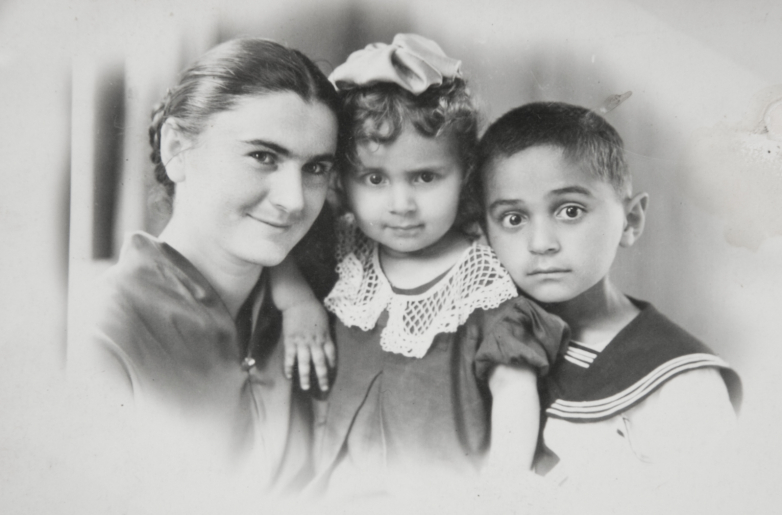
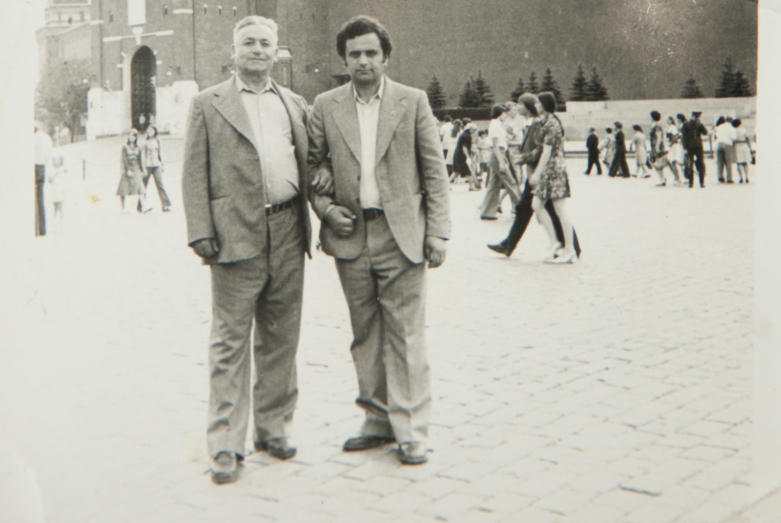
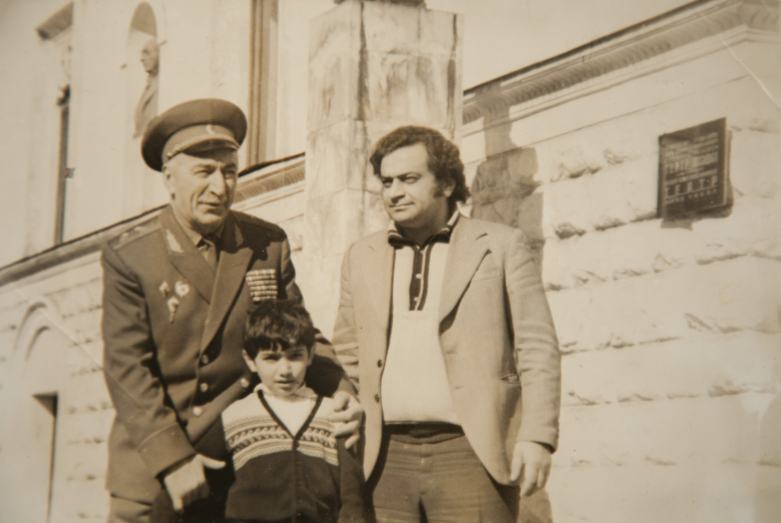
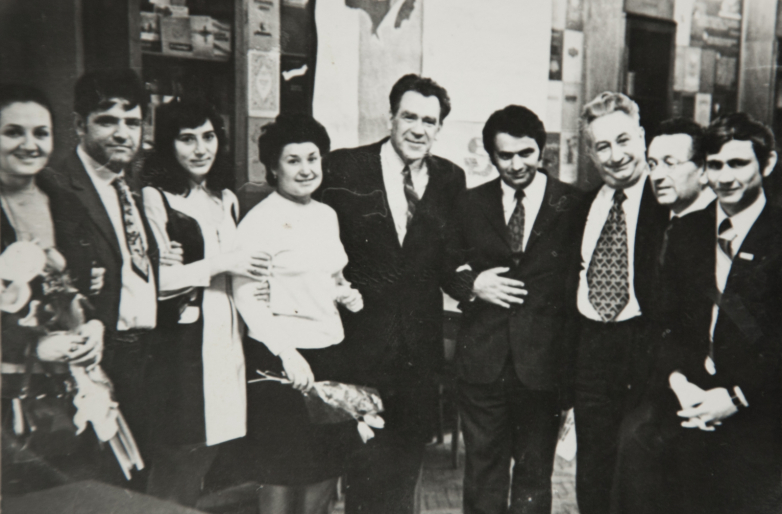
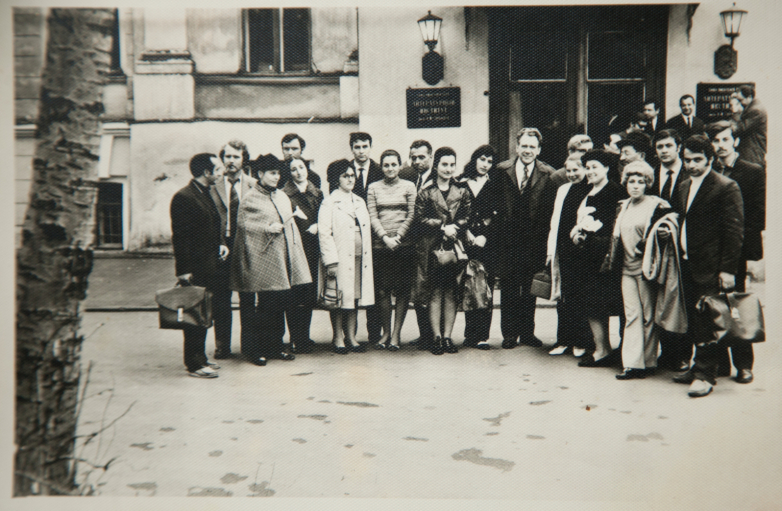
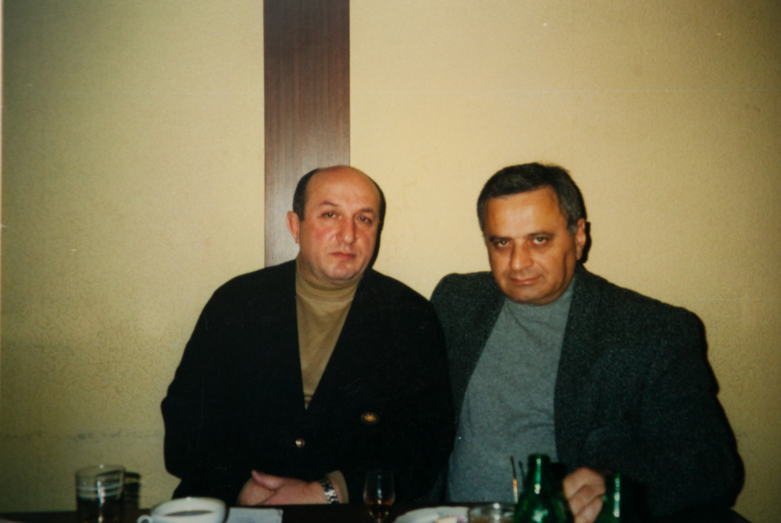
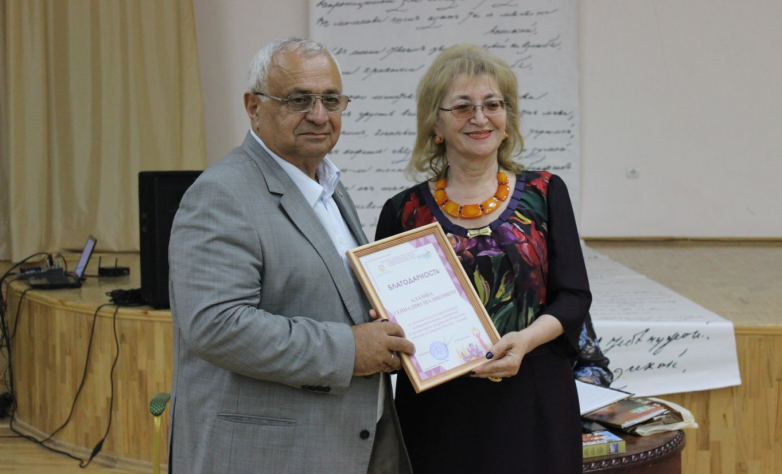
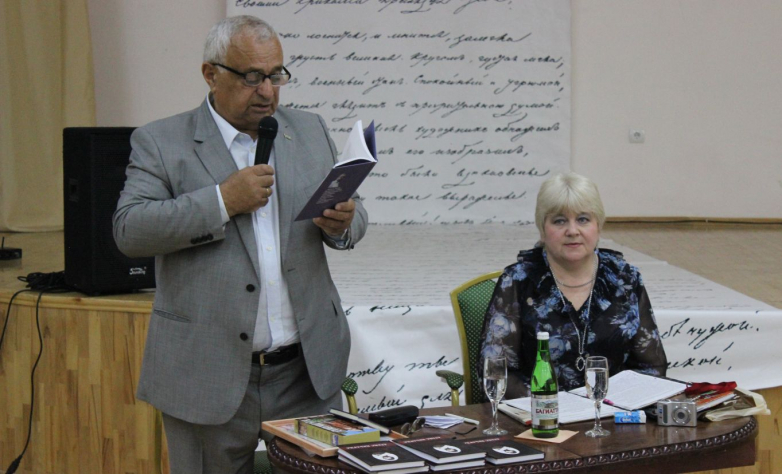
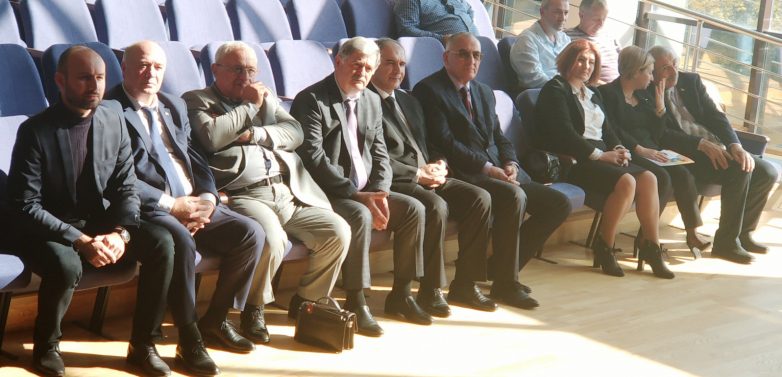
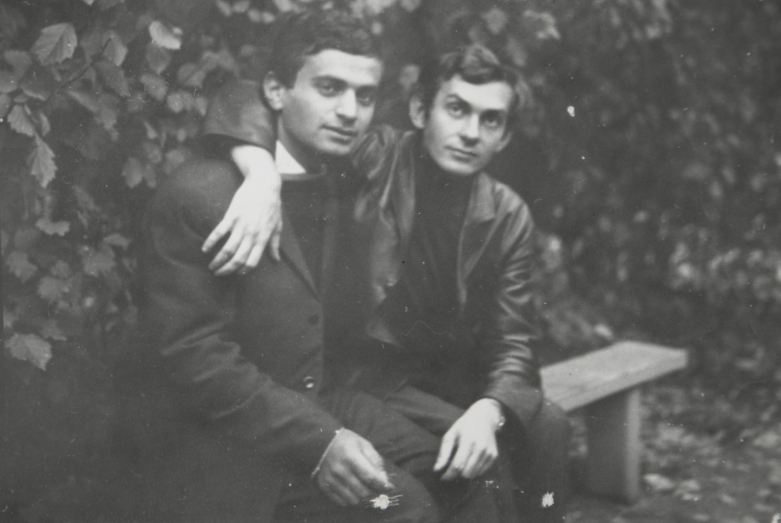
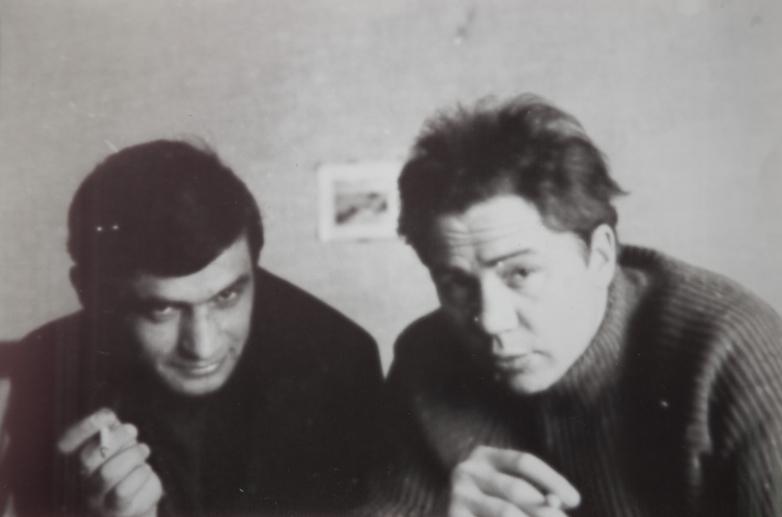
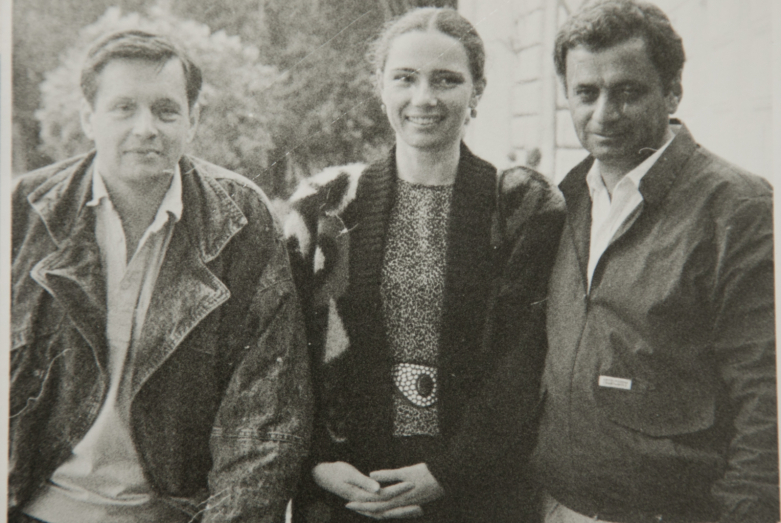
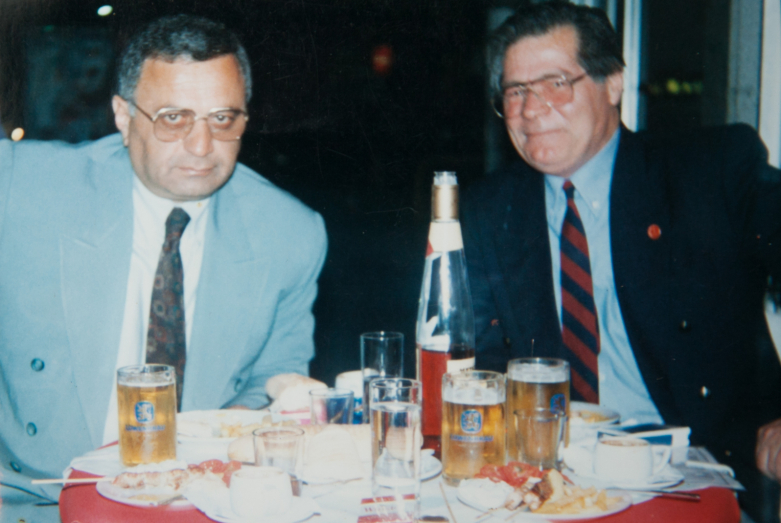
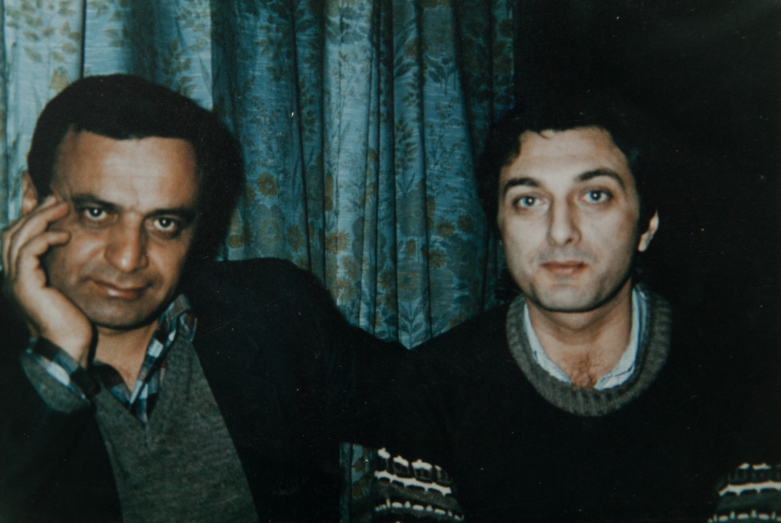
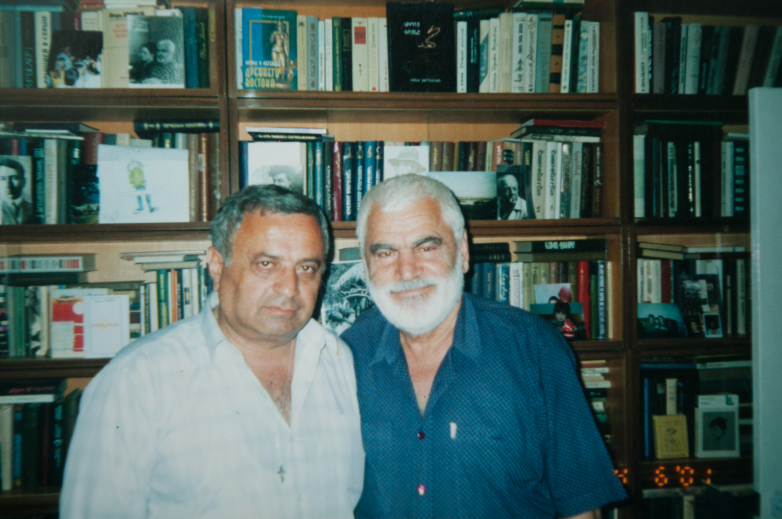
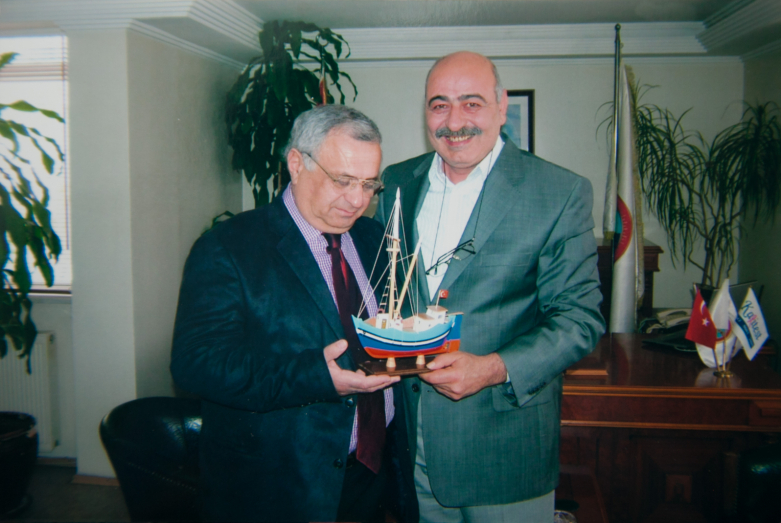
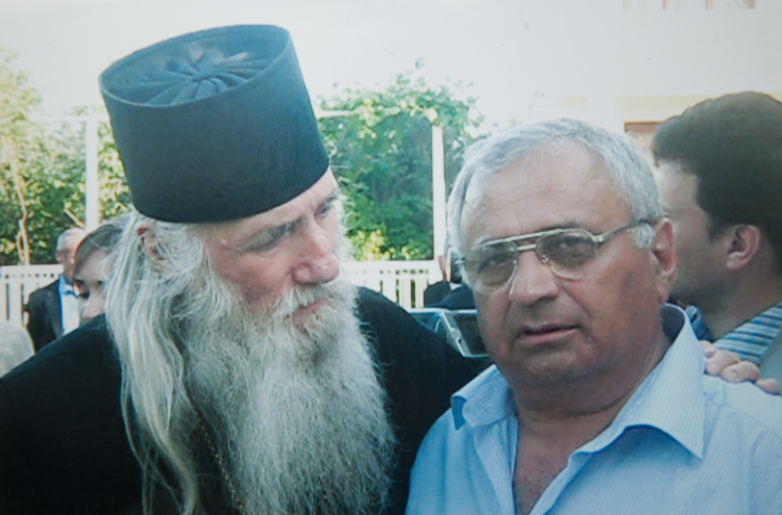
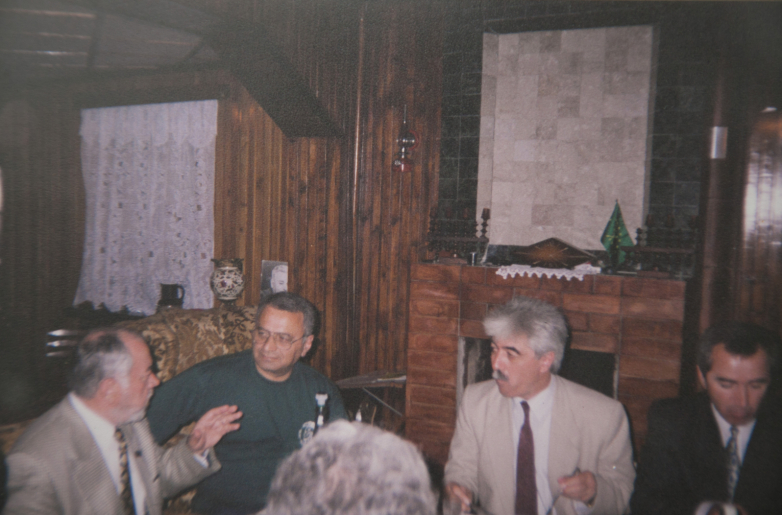
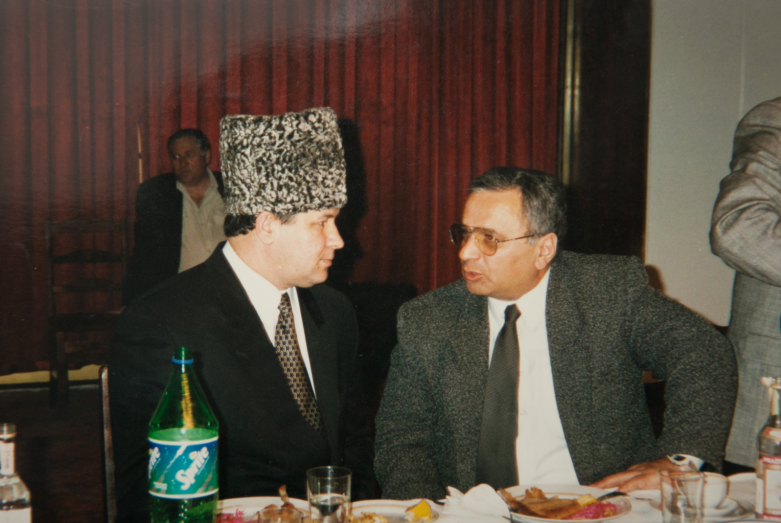
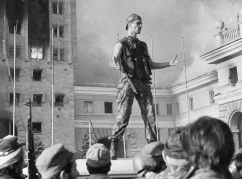
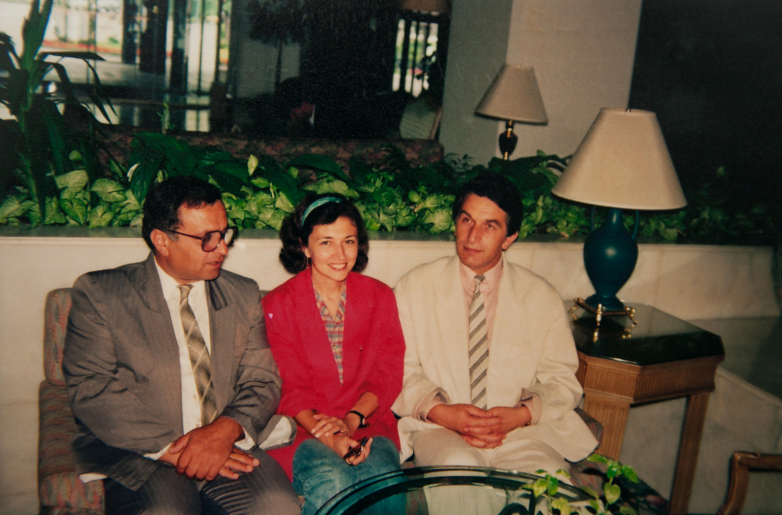
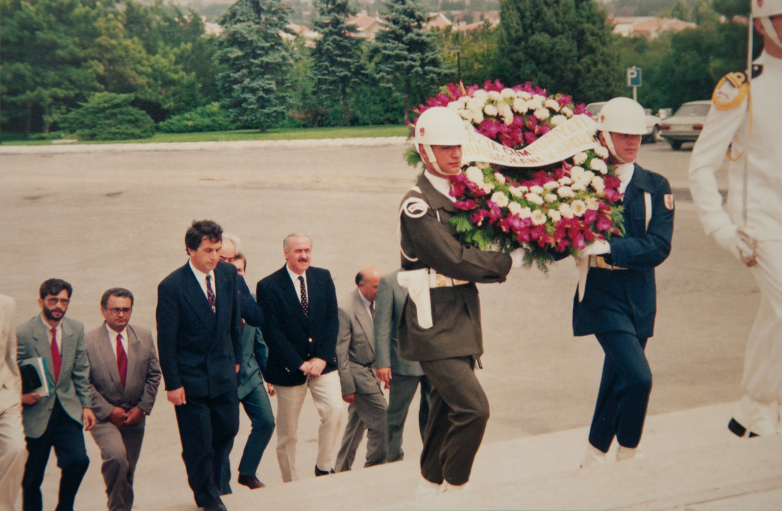
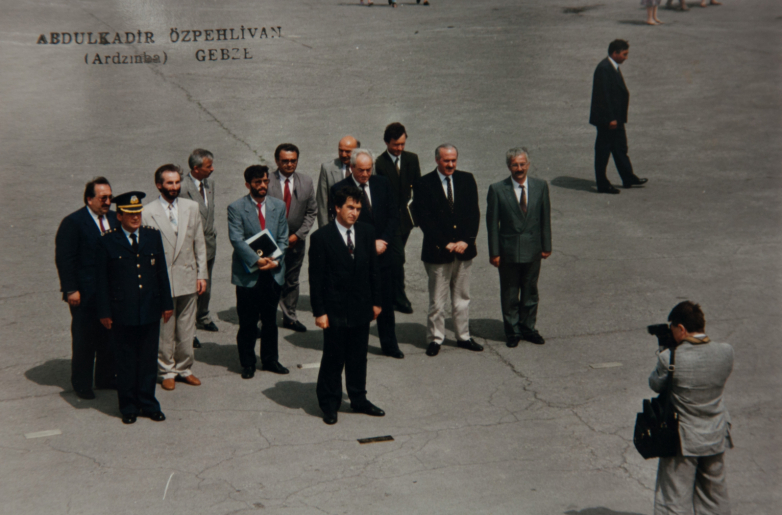
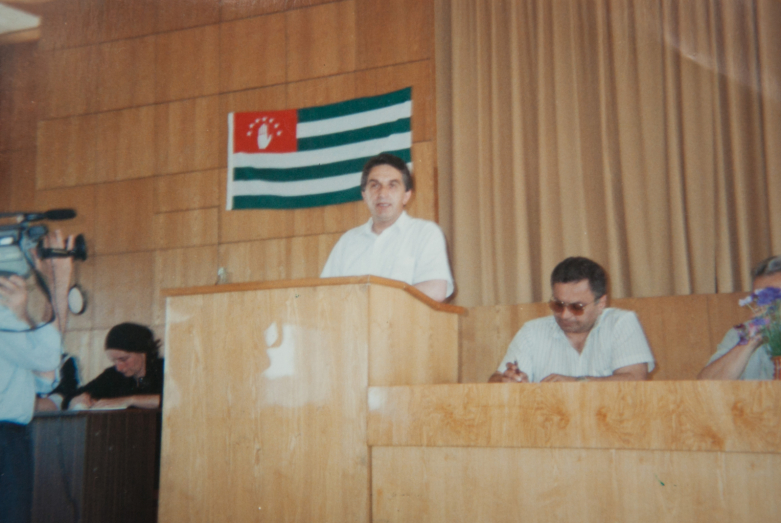
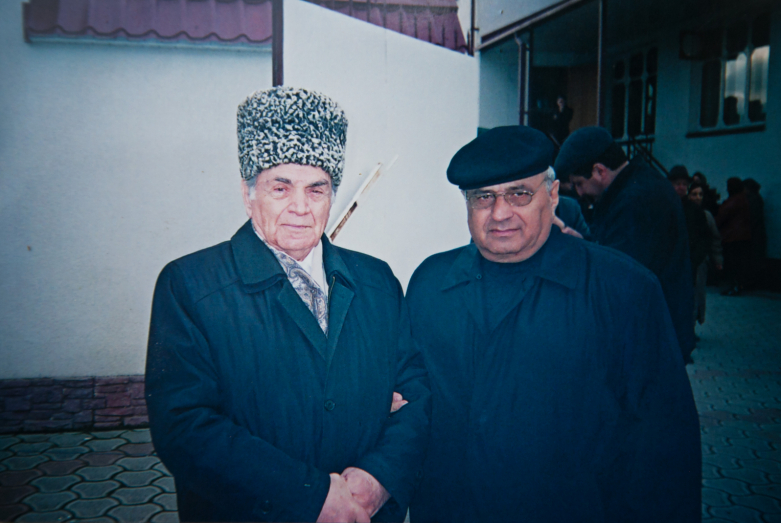
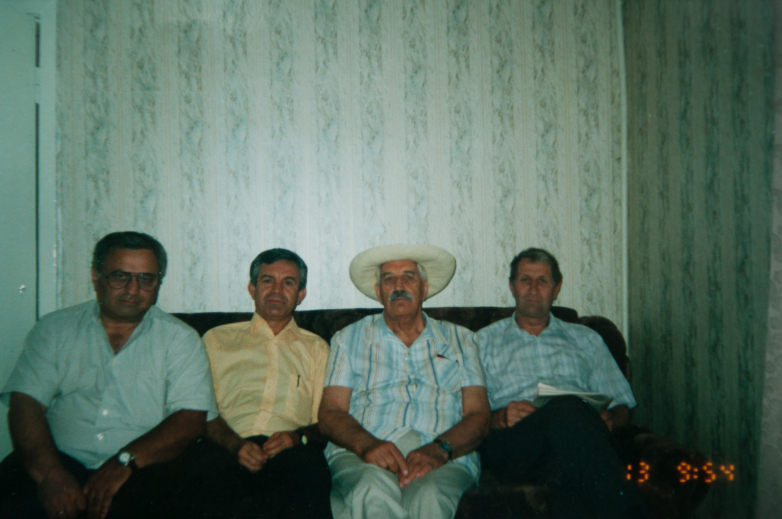
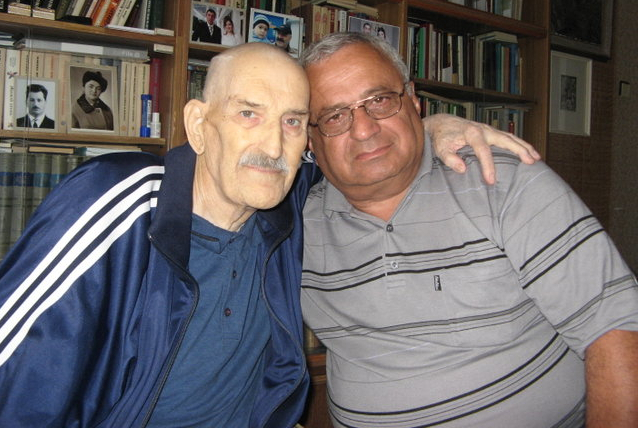
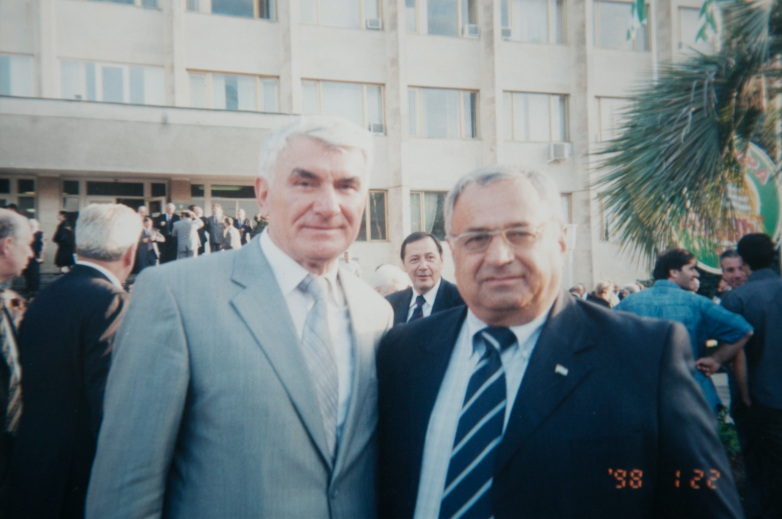
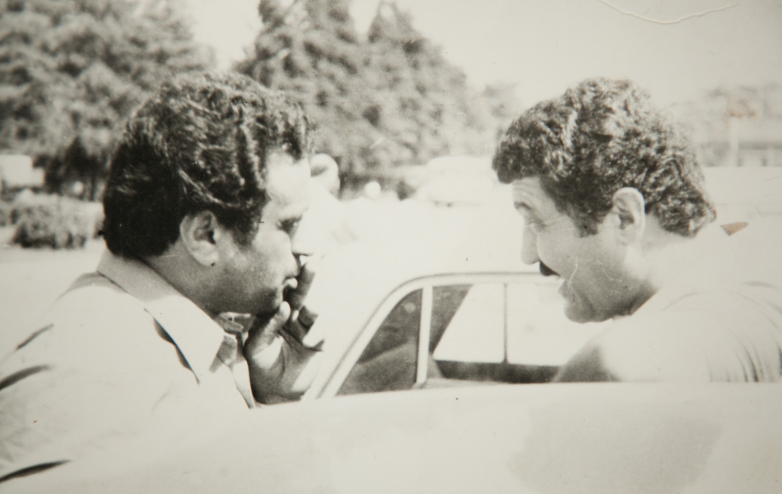
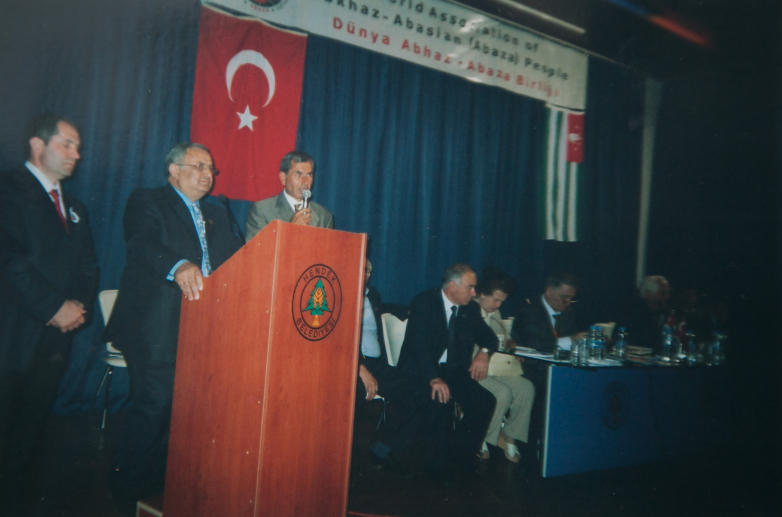
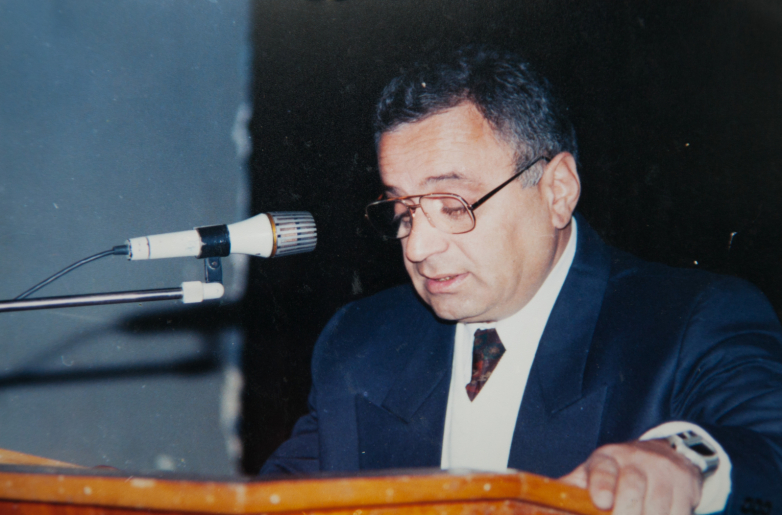
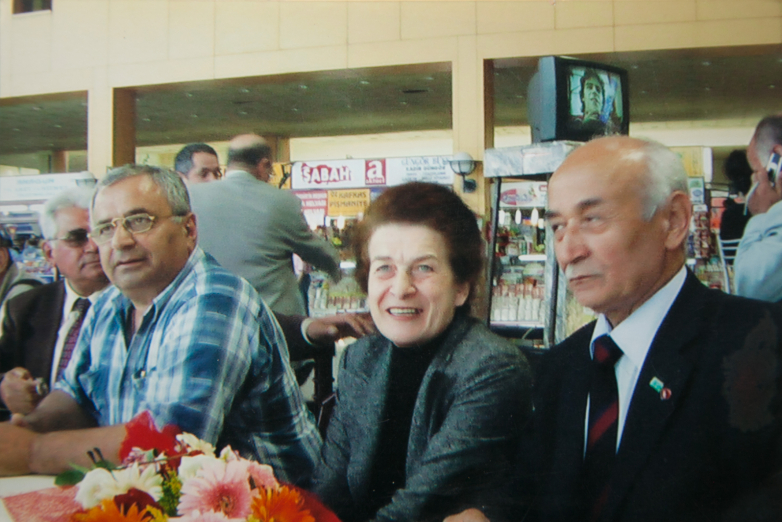
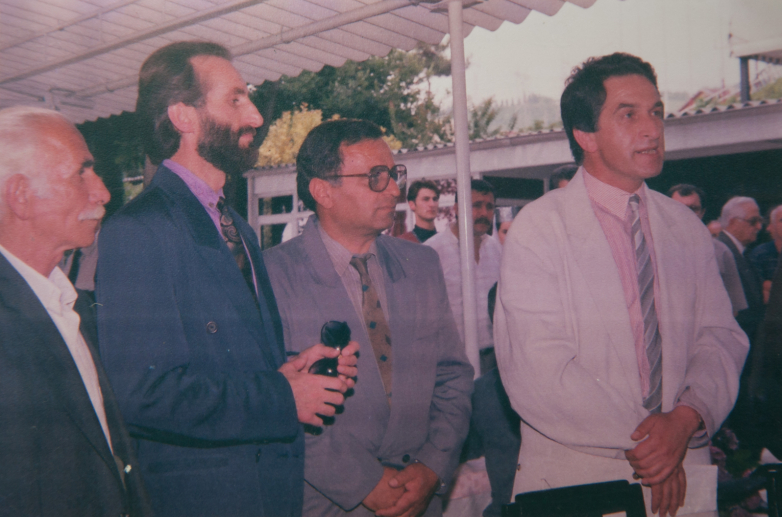
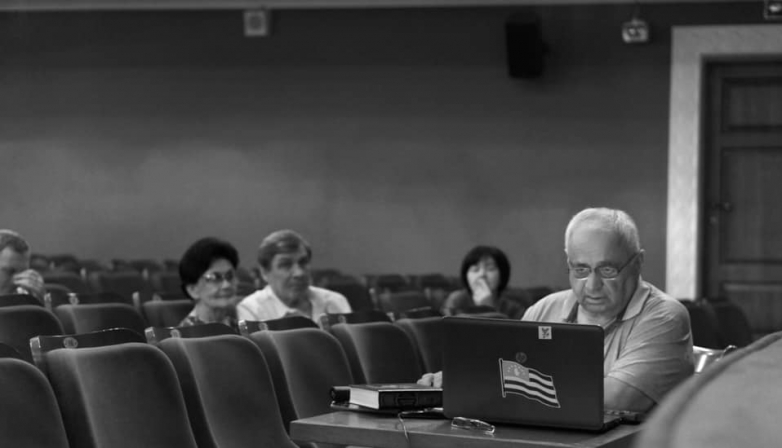
to login or register.